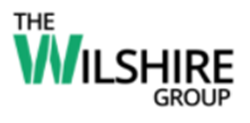“Revenue Integrity” within a healthcare system means many different things depending on who you ask, the size of the institution, and if the OIG (Office of Inspector General) has paid a visit or not.
I believe Revenue Integrity (RI) is a culture that lives within an organization and is part of each component of the revenue cycle from scheduling or episode of care to payment posting. It doesn’t matter if you’re a large multi-hospital system or a small, rural not-for-profit. It’s an attitude that starts at the executive leadership level and permeates throughout the entire organization.
At its core RI encompasses several key areas:
- Compliance – ensuring compliance with all applicable federal, state, and MAC regulations, laws, and guidelines in every part of the revenue cycle. Constantly reviewing and analyzing new and proposed regulations and (if able) providing feedback and assessing potential risk. This includes maintaining a robust audit program.
- Integrity – following the intent of the law or contract and always treating staff, patients, and others fairly and respectfully. When mistakes are found, acknowledge them, correct them, and ensure they don’t happen again.
- Minimize Revenue Leakage – establishing processes and procedures to ensure your organization is paid correctly and timely. Ensuring you are paid fully for the services you provide is a major part of RI.
- Work Efficiently – working to deliver your work product as cost efficiently and with the highest quality possible.
- Process Improvement – whatever program your organization might use (Lean, Six Sigma), constantly improving must be part of your RI program.
- Training – changes are occurring all the time and it is vitally important management and staff are kept up to date on what is happening and given the continuing education needed to perform their jobs efficiently and compliantly.
One very effective way to realize optimal Revenue Integrity is through the establishment of a mid-revenue cycle department devoted to just that. Epic can be optimized to your reality. Just as there is industry best practice, there is also your best practice and The Wilshire Group can get you there through helping you operationalize a fully functioning Revenue Integrity Department (RID), as we’ve done at other clients large and small. The following is a list of the types of expertise, functions, and/or responsibilities a mature RID offers:
- Chargemaster (CDM/EAP)
- Charge Protocols
- Charge Capture/Reconciliation
- Charge Audit
- Process Improvement
- Data Integrity
- Clinical Module Integration with Revenue Cycle
- External Government Audits Program
Please reference my presentation, “Bringing a Revenue-Centric Focus to Clinical Applications & Workflows (#024),” on Epic's UserWeb (from UGM 2015). I discussed in detail revenue cycle lessons learned related to #7 above.

 (310) 699-2017
(310) 699-2017
 info@thewilshiregroup.net
info@thewilshiregroup.net